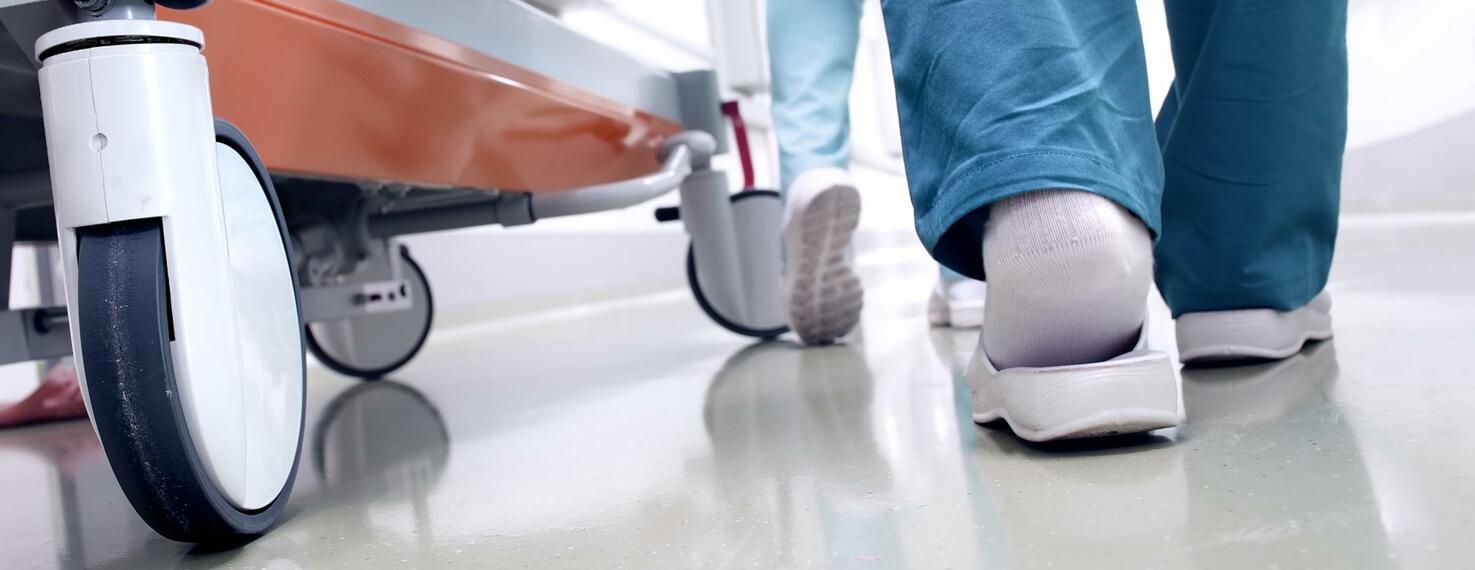
Лексикон: W
What are the advantages of a rubber tread?
The tread material has a profound influence on the quality of a castor or wheel.
It influences the smoothness of running, the resistance, the starting, rolling and swivel resistance – and the drive comfort of the castor or wheel. The category of rubber treads covers a large group of possible treads: These include solid rubber, thermoplastic rubber, a special hard soft rubber and pneumatic tyres.
As a rule of thumb: The tread should be softer than the floor on which the castors are used. Otherwise, the wheels may press into the floor and damage it. One exception is the use of wheels on soft floors such as carpets: A wheel with a hard tread can also be used here.
Advantages of a rubber tread
Rubber surfaces have in common that they are usually extremely kind to floors and also dampen vibrations. They have low swivel and rolling resistance, which means excellent drive comfort. Another advantage is the material's resistance to many aggressive substances. Solid rubber, for example, can be used almost universally. Heat-resistant solid rubber tyres can be used even at extreme temperatures above 200 °C. Thermoplastic rubber is non-marking and runs quietly. However, this material cannot be used in the high temperature range.
Pneumatic tyres are also made of rubber. Their rolling resistance is low even on difficult floors. In the case of pneumatic tyres, it is important to maintain the specified tyre pressure at all times. Regular pressure testing ensures that the tyres are functional in the long term.
We can help you choose the best material for the treads of your castors and wheels. Whether it be rubber, polyurethane or any other material – we will find the solution that makes your application run smoothly!
